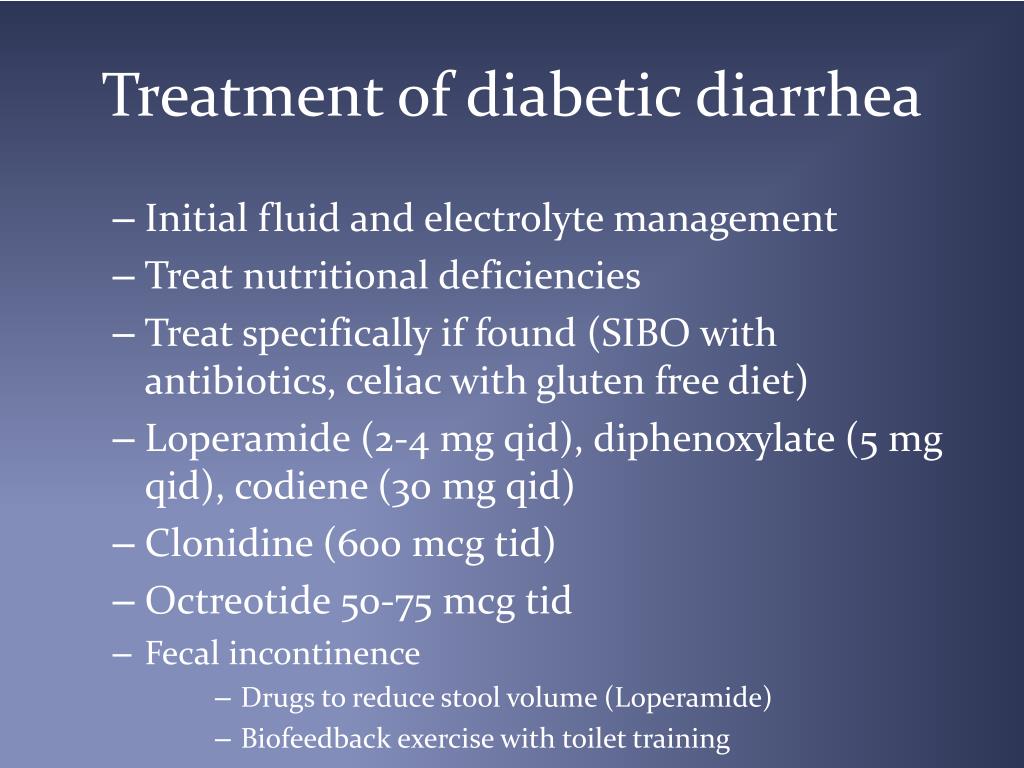
The digestive tract is affected by diabetes, and the digestive process starts the moment a person takes a bite of food and ends with a trip to the bathroom. The nervous system controls many functions in the body, including heart rate, breathing, and digestion. High blood sugar can damage nerves and blood vessels in the body. This can slow or speed up the digestive process, causing diarrhea. People with diabetes must monitor their blood glucose levels and consult their doctor if symptoms persist or become more severe.
Sugars are highly concentrated and can affect the digestive tract, making the intestines unable to absorb them properly. As a result, the stomach dilutes the sugar by adding water and electrolytes. The stomach releases hormones that cause the contents of the small intestine to move too quickly. When this happens, diarrhea is the result. For this reason, it is important to avoid high sugar foods and drinks or consult your doctor.
Some medicines used to treat diabetes can cause diarrhea. Certain types of diabetes medications may increase the risk of neuropathy. Chronic gastrointestinal problems can be difficult to manage, but you should talk to your healthcare provider if you are concerned about your condition. You should also be aware of other symptoms such as constipation or abdominal pain. If you experience symptoms of diabetes and diarrhea, see your doctor immediately Danita Benavante for a diagnosis. If your doctor suspects a blood sugar problem, treatment for diarrhea will depend on the underlying condition.
Diabetics should eat a healthy diet and drink clean water whenever possible. It is best to drink bottled water. In addition, you should follow good hand washing habits. Always wash your hands after touching public places, going to the toilet, preparing food or eating. If you’re on a high-sugar diet, use an antibacterial hand sanitizer to help prevent bacterial diarrhea. Remember to monitor your symptoms and contact your doctor if they persist.
The sugar in sweet treats is very concentrated. The stomach dilutes it with water and electrolytes so that it is not absorbed into the body. In turn, this causes the digestive system to dump more water into the small intestine. When sugar is not absorbed, the small intestine releases hormones that stimulate the movement of sugar. The result will be diarrhea. A diet high in sugar can cause symptoms of diabetes.
People with type 2 diabetes may experience chronic diarrhea. However, there are other ways to control blood sugar levels. For example, a person with severe fructose intolerance may take metformin. Other treatments for diabetes include a FODMAP-free diet, which can eliminate diarrhea within a week. In addition, a FODMAP-free diet can help a person with any medical condition. The diet also helps them control their blood glucose levels.
Another condition that can cause diarrhea is fructose intolerance. This condition is a common side effect of a high fructose diet. Despite the symptoms, this disorder is treatable. You can find out if you suffer from this condition and what treatment is appropriate. You can consult a dietitian and physician at https://www.prende.org.mx/ for more information on non-FODMAP diets. If you’re not sure which type of food is FODMAP free, a professional can help you create a menu and determine if you’re at risk.
Having diabetes-related diarrhea is often associated with a condition called fructose intolerance. This is a common complication of diabetes. For example, a type 2 diabetic may experience diarrhea as a result of consuming large amounts of fructose. While this condition can cause persistent and severe diarrhea, it can also lead to other complications. Fortunately, there are several effective treatments for this disorder.
Several medications are available that can help treat diarrhea. For people with fructose intolerance, an anti-diabetic diet may help improve symptoms. Medications given for this disease can help prevent the symptoms of diabetes. Although it is difficult to diagnose, most people with diarrhea can be successfully treated simply by changing their diet. A colon cleanse can help restore intestinal balance. While you may not need any medication to manage your symptoms, you should check with your healthcare provider if you are taking medication that contains fructose.
